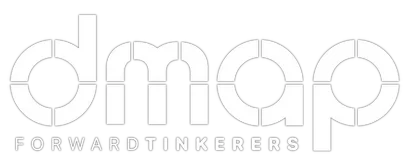Truelogic Episode 8 Recap: Building a Good Client- Agency Relationship

The ability to build and nurture high-quality client-agency relationships is one of the most significant factors contributing to the long-term success of a business.
According to research from R3, the length of the average client-agency relationship is just 3.2 years while the best client-agency relationships last 22 years on average.
With strong communication, clear expectations, and trust between both parties, your agency can build a reputation for total client satisfaction.
But how do you build successful relationships with your clients? And how can you make them feel like they can depend on you to meet their needs without sacrificing your own?
Podcast Transcription
Welcome to another episode of Truelogic DX Podcast today we’ll talk about client-agency partnerships in digital marketing. I’m Dale and I’m Andy and we’re Truelogic Account Managers welcome to the Truelogic DX Podcast.
We work hand in hand with our clients and we know firsthand, Andy, how important relationships are when it comes to managing clients, right? Would you say so?
I like to think of it as like, you know, with any normal relationship in real life. When thinking of a partner, you can have the most perfect partner, intelligent and sweet, but if in the relationship there’s no communication, it’s one-sided, it’s not going to work out.
It’s exactly the same thing with client-agency partnerships.
What really makes a good client-agency relationship?
1. Communication
I guess it started off with the basics or the fundamentals of any relationship and of course, that’s communication.
My recommendation is just to make that a top priority. My style in account management is just really to over-communicate. I also make sure to open lines of communication. So not just email. I will even encourage clients to like and have a group chat. I would always say that in every meeting I have, cause sometimes, you know, there are things that maybe the client would forget to ask.
I would always say, you can always message us. You can always email, send us an email, or message us on a messaging app so that they know that we’re- our communication lines are open for them.
There’s really no excuse for any lapse in information, at least on your part because you’ve exhausted all the possible channels, It’s important that even if a client doesn’t necessarily respond, because maybe they’re busy, knowing that you reached out, goes a long way because the client knows that they’re being taken care of.
And they know that you’re on top of things. I think that’s what’s important for a client is they know that their agency is actually working. So I guess one more tip I would give there, something that we do, is we send out status reports to our clients just to make sure they know what happened during that week. And they know what happened during that week and they know what to expect or what we’re waiting on from them. It’s really like, I’ve heard from a number of my clients, how they’re thankful that we do send them like weekly campaign updates or status reports, just so that they know that again, to them, it signals to them that, these people, this agency is really looking out for the campaign.
I guess just to share maybe one of the disadvantages of over-communicating is that it becomes a standard, right? Because you over-communicate, clients expect that to be the standard and they expect you to bring them up at a certain time or a certain day. Just make sure that if you commit to a certain cadence in terms of communication, you have to follow through.
2. Have separate a communication channels for work
If you’re going to start a group chat with your clients or with an agency or any work-related matter, make sure you designate a certain app for work. Because sometimes, if you have group chats with family or friends in the same app, you might make a wrong send.
So speaking from experience, that could be a very awkward situation. To avoid mistakes, I really make sure that I choose a really common messaging platform for my clients and then place them all there.
3. Stay organized
And I guess that brings me to my next point – staying organized. You know, organizing your workflow, organizing your communication channels really helps make the relationship work. It makes it easier.
We were taught to do the project run-throughs. That’s how I stay organized. As much as possible if I could do it daily, I would. I’m doing it like every other day, just to check on again, what’s happening with certain tasks or deliverables. If they will be delivered on time and if they are delivered late, then I have to communicate to the client that hey, we’re going to need like a few more days for this. Here’s the updated timeline, definitely doing a project run-through helps me keep organized with the campaigns that I’m handling.
Then we have all the pending tasks for each client and then we update it daily. So actually we start and end our day looking at that sheet just to make sure that we’re not dropping anything or dropping any tasks within the day and that we’re on time for all our deliverables. And I think that’s really the point I want to drive here is that note-taking in whatever form that you’re comfortable with, whether it be digital, you create your own systems or just a simple notebook.
You know, it goes a long way because I think one thing that’s really important to build trust with a client is just to make sure that the promises that you made or the timelines that you provided are actually being followed through.
It is really important to stay on top of things in order to build that trust because that foundation of trust, it’s the building block of any relationship and, you know, again, similar to a real-life relationship, without trust there’s no love. So you just have to make sure that we’re committing to the promises that we give to our clients, right?
4. Establish an efficient content approval process
We’ve been talking about things that we do as an agency, but of course, it’s a two-way relationship. There are things that we expect from the client as well. And one of those things that I look out for would be their content approval process.
I think any agency would have their own horror stories with getting approval from their clients, whether it be creatives, strategy, briefs, whatever it may be. One thing that you need to establish early on with your client is an efficient content approval process.
The length of that process is long enough. But the worst part is having too many chefs in the kitchen is that they tend to disagree with each other, hence prolonging the process even longer. So that’s actually the difficult part just dealing with that process.
So what I often tell my clients, as you mentioned the intake portion of the campaign, is that, how can we fast track? How can we make it efficient for both of us? Can we just have you approve it? I’m talking about the POC or can we just have at least two? Can we shorten it? Because they need to understand that the longer it takes, I know there are a lot of important things like approvals and stuff like that, but if we can, if we could make it more efficient, then we can get the campaign started earlier and we can get the results faster. Going back to over-communicating, if there are any delays for any specific tasks because of approval, as account managers our job then is to manage their expectations because this task or deliverable is being delayed by your approval process.
Then the other tasks associated with it from our end will be delayed as well. As long as that’s communicated, as long as that’s in an email. Always keep [email] receipts of your clients. Just as long as you over-communicate about the consequences of delaying a certain item, then you’re okay.
5. Be transparent
I think clients would even appreciate that transparency. Hey, because this is delayed we’re going to have to delay another task, or the results will be a little bit delayed as well. That transparency will go a long way in building trust. And then it puts a little bit more pressure on them to approve, right? So actually that’s a good tactic as well, just to make sure, Hey, if you want results, we need that, we need that approval yesterday. Being that transparent will really, really go a long way.
6. Learn your client’s business
I’ve been talking about intake, it is really embedded in our process, in our campaign to make sure that we intake a client properly. So I’m not sure if other agencies or corporations or companies that use the term intake, you might be familiar with a client brief instead. So it really functions the same way. It’s just really to learn about your client’s business. And it’s very important to learn about it.
We want to, of course, align our goals with your goals. And learning more about a client’s business again also goes back to that foundation of trust because we don’t want to sell, or we don’t want to commit to something like a cookie-cutter campaign. Every single client that we have, because each client is unique, they have its own challenges. They have their own characteristics.
Learning those nuances, learning the culture, learning the products, and the services are really paramount to being able to deliver a campaign that works. You mentioned earlier, building strategy. And the strategy isn’t just about fundamentals of what digital market and these, in our case, a little marketing, it’s not really just expertise because that can only get you so far.
Eventually, you’re going to hit a roadblock because there are certain external factors within clients’ businesses that are out of our control, and understanding those factors will help us eliminate that barrier. So for example, if a certain campaign is a kind of held together by a tactical, or a time-bound campaign by the client, then we have no choice, but to ride along with that tactical campaign.
So for example, if the first three months the client says, well, we really have to focus on this particular direction. This is where the company’s headed. We have to understand that and provide a supplementary campaign that will support that, where it’s not just our way or the highway. It’s really the client’s, with our expertise.
We’re agile enough to accommodate if it’s fine, but we’re also honest enough and straightforward to let them know that, okay, we might not be able to work this, but this is what we can do. But we’ll always provide something on what we can do for the client.
7. Set the right key performance indicators (KPI)
Having KPIs would really give us a roadmap or at least an end goal, a finish line that we can all strive for. Definitely setting clear KPIs would help us fine-tune the strategy in order to reach that or the KPI set. These are numbers, these are quantitative, it’s black and white that you reach X amount of traffic by this time. Did you get X amount of conversions by this time, these are very important. You can’t take these metrics for granted. So when you set this with your client, it has to be based on data. It has to be grounded in facts.
When we also say set clear KPIs, it’s definitely something that’s similar, to a SMART goal. Definitely, it’s something achievable, time-bound, realistic, and also based on data. The client would usually send over their set of KPIs from management, like from their bosses “hey, this is our, these are our targets.” So our role as an agency is to tell them based on the campaign. Are these KPIs actually realistic? More often than not, bosses or management sometimes just pull a number, just provided because you know, that’s a very desirable number, right?
But sometimes the data won’t support that. Forecasting then is a very important integral part of KPIs, meaning take a look at an example, the camera analytics. We’ll take a look at your data. We’ll take a look at performance and see if this traffic or if this, sorry, if this KPI is actually attainable with your current setup, with your current campaign, and mind you, we’re just starting a campaign so their results might take a little bit longer.
So we have to manage the expectations of the clients based on data and the best thing about data, again, like KPI is their numbers. They don’t lie. It’s black and white, you know, it’s, it’s something that a client would even appreciate now. We need to be able to educate them as well and at the same time, there might be some things that they know, they know from their end and again, it always goes back to trust. It goes back to learning your client’s business. Then again, it’s really a two-way street, right? We communicate and we collaborate ’til we get the right set of KPIs.
8. Hire and train the right experts
Another thing that an agency has to fulfill, of course, would be to hire and train experts. We need to have the skills, if we’re gonna promise this much traffic, I mean, if we’re going to promise this campaign, then we need to have the right people and, we need to be able to let our clients know that they’re in good hands and we just have to do this by providing good work by hiring and training experts, right? But apart from that, like the operations team, people who are actually going to execute the campaigns, need to know what they’re doing. So an agency needs to be able to supply the training necessary if there are certain skills that are needed for that specific campaign.
9. Report back honestly
Another one would be to report back honestly. I used to be a person who would be so worried when the report is like, let’s say the monthly report turns out, it doesn’t look good. And I would see all red, all red marks, meaning a lot of keywords went down.
But the important thing to remember with regards to this is that you have to, again, report back honestly. Report what happened and the most important thing is what are you going to do about it? Or what are we going to do to address it? And it happened to me a few times where I’ve had to report, well, and what they call an ugly report. It’s full of a lot of red marks there. It’s an ugly report, but I know for a fact that there I have at least one client that appreciates that from us, that we report things as it is and we also make an action plan for them, like, okay, this is what we’re going to do in order to address this.
There will be external factors that are out of control. Let’s take, for example, the pandemic. So when the pandemic hit, a lot of industries were affected, the meaning of course the attention in the interest of the public shifted. You know, the priorities are different now. The priority is safety, the survival itself.
So there are a lot of industries that were affected negatively, which is reflected in our reports. So seeing those reports, seeing all the red, as you mentioned, the decreases in all our metrics, sometimes it’s really, as an account manager it’s disheartening to present it. But then again, as you mentioned, clients will appreciate it.
You can’t hide bad results because you know, that’s just lying. You’re, you’re being dishonest. You’re doing a disservice to your client by not showing the data, or if you have a plan of maybe we can skew the data or maybe we could show a different thing, you’re doing a complete disservice to your client.
So being honest goes a long way. And as you mentioned, it’s not just about honesty. It’s also about action. What do you do about it? So here are the reds. What do we do? How can we recover from it? And I think more than anything else, that’s what the client would really look for when you present a bad or as you are, as you say it, an ugly report, right?
Immediately what the, what goes in their heads, what are we going to do about it? So moving forward, what are the action steps you need to take? So by the next report, we’re going to see the green.
10. Trust the agency
Trust that they’re the expert. Trust them. They have the best intentions for you, you know, the best intentions for your business. They want the best for your business.
So trusting the agency goes a long way in providing the results that you want. This means the recommendations that an agency would give is usually the best one or the ones that would generate the results or the KPIs that we agreed on. And sometimes that solution or that strategy won’t sit well with a client just because it’s so different. Maybe it’s something that they’re not used to, but trusting the agency, just thinking of diving and just you know what, go for it. You’ll realize that, Hey, we should have been doing that in the first place for, for the longest time. So trusting the agency is really important because we come up with these recommendations and there are a lot of clients who say no, or, or let’s do it a different way then what’s the point of hiring?
So, you know, you’ll hire the agency for a reason and if the strategy is sound, if it makes sense, go for it. If it’s based on data, it’s backed up by data, then there’s no reason to push back if it’s just really a matter of, you know, Hey, it’s, it’s really different so we will take that risk.
I encourage you guys to take that risk and just give in and trust and pull the trigger, and see where it goes. The thing is which I love and it perfectly describes how agencies should be. And that’s agile. You know, we have to be agile and we need to be responsive.
We need to not just be responsive, but we also need to have initiative. But my point is, if, for example, a specific strategy doesn’t work out and starting to risk didn’t pay off. So my point is when a certain strategy doesn’t work out, or if a certain risk doesn’t pay off. Again, just trust the agency, we know what we’re doing.
We’ll take care of you. And we have the expertise and we have the resources to be able, to execute strategy, salvage if needed if it fails, and move on and provide the results that we want. Help us help you. We’re here, we’re here to help you, but we need your support, right? That’s why we have championed it.
11. Give an honest feedback
I definitely appreciate it when clients would give honest feedback, even if it’s the work that we do or how we work. I would always thank them. Like, thank you for bringing that to my attention. Thank you for that feedback. And we’ll make sure you like to improve on this.
When they give us honest feedback, it’s just a way for us to improve, uh, how we work on the campaign itself. Whether it be feedback on your actual account managers or even the operations, the product, or the service, it goes a long, long way. And selfishly it energizes us whether it’s positive or negative, either of the two, we really appreciate that. And if you want to see, like, if you want to energize your account manager or, or just see a difference, it’s really feedback. Because if there’s no feedback given, we’re just going to assume everything’s okay.
Other than that, it is not just about results. It’s also about the way of working. It’s also about communication. So it’s not always the end product or the end service so give us feedback so that we can adjust the way we work, the way we do things, the way we provide, maybe, maybe even just reporting, reporting here. We want to do it this way.
12. Be responsive
Well, I think this is definitely would be also like a wishlist for me, or part of a wishlist is to be responsive, especially that’s, especially for when we need to get approvals or when we need like for example, we’re working on a deliverable and we need to clarify something and let’s say we’ve provided a timeline for that approval, for that deliverable, but we need to clarify something.
So if they don’t respond to us, you know, if they don’t get back to us as soon as possible, or, um, in a, you know, in a quick manner, then, you know, the deliverable would have to be moved.
We do understand that you know, you’re probably busy. You probably have a lot of things on your plate at the moment, you’re distracted, but if you could get back to us as soon as possible, that would really help us just get the campaign moving along.
So, very simple. Be responsive. So communication again is very key in making sure that this relationship works.
13. Trust the process
It goes back again to trust the agency. So the agency, we have our own way of doing things. We have processes for everything. We have a certain cadence. We have turnaround times. For specific tasks, I think any agency, any industry would be able to relate. We’re a client. I need this now, I need this by the end of the day, I need this in the next hour.
As much as possible as agencies and account managers, we try our best to accommodate that. If it’s well within reality, maybe they’ll do it, but, of course, you have to understand that that’s already an ad hoc task.
That’s already something that we’re doing for you. It’s a favor basically. I mean, of course, you’re paying us to do it, but it’s, it’s not a standard process. So we’re kind of circumventing the process. So we’re going to do that as much as possible, but there will be times when that’s impossible already.
For example, if there’s a long queue of tasks and we can’t find time, or, you know, we can’t find a slot for you, for your end of day deadline,
Please respect that. We beg you. Of course, we’re going to try our best. I mean, it’s our job. We’re going to find, we’re going to exhaust any option in our arsenal to give and deliver that for you, but there will be times for it.
And it’s just really impossible. I guess one thing though, like if it is a do or die situation, if it is an emergency, then certain things can be and be done for it. But if it’s just like, I just need this report, I just need this. But you know, or, we communicated that these things take at least one day or two business days to do, then we hope you understand why we’ll have to say no.
And that if you respect that your account manager will love you. I swear. If there’s this respect towards the deadlines, the processes, then yes, you are going to be our favorite client here. Your account manager will just love you for that. And it really helps because of one thing that I always tell clients, I’m not sure if you tell this to yours as well, Andy.
Whenever they rush something and I say, no, you know, we really can’t do that. The one thing, I just, the thing that I used to justify that no, is that I don’t want to rush things. I don’t want to deliver you, for example, if it’s terrible, I don’t want to give you a haphazard report by the end of the day. You know, if you know how to give you a good quality report, we need at least one to two business days. I’m not going to rush her apart in an hour or two. That’s one thing I will never compromise quality for anything else. So quality somewhere, unless there’s an agreement. Hey, I just really need this. I don’t need anything deep. I don’t need any analysis.
If you want a good quality product or service, then give us the apple time that we need to do it. You will get, you will get what you want and more.
What factor may hinder a good client-agency relationship?
1. There is not enough collaboration
I think a couple of things that would be if the brief is too loose, it’s just like up in the air. And of course, if there’s not enough collaboration with the, uh, with the client and agency.
If there is no information, there’s no data to support the campaign. It really falls apart from there. And of course, yeah. You mentioned not having enough collaboration, right?
What will you look for in an agency?
1. Review your capabilities
Let’s say you don’t have the capability to run a digital marketing campaign on your own or in-house like maybe just have a small team and or if there is a specific technical need, go get an agency.
2. Consider your budget
I think when it comes to resources, bottom line, if you’re a decision maker, the bottom line thing that you just really have to consider, budget. Is it going to be cheaper to hire an agency versus hiring someone in house and, you know, going through all the training, hiring process, etc.?
3. Check your deadline
So I guess that also ties into your deadline. When do you need a specific task done when they need this campaign to work? Because if you’re going to hire something, someone in-house, that takes a longer process because you’re going to have to train that person. Even the hiring process itself is already tedious enough. But onboarding is even more tedious.
So if you have a tight deadline, for example, need results in six months, I need results in a year. Then an agency might be the best fit because we can get the ball rolling on day one. What, you know, there are no more, you know, we just need to set up in month one, and then we’re just going, going through the motion monster onwards.
So if time is of the essence and time is something that you consider and of course, budget, then hiring an agency might be the best course of action for you, great. And I guess what the look for an agency really depends on. I think what’s important is is this agency a culture fit for you? Is this agency of course, well, within your budget?
4. Align your expertise
Do they have a kind of like a track record if you see that they have worked with other clients as well and have performed well. Trust signals. it’s something that we use in the industry that we can also use in this situation. When you say trust signals, these are just indicators of whether or not this brand or operation is credible. So you have your testimonial. Your case studies may be devious, their brand portfolio, their client portfolio.
So these things paint the picture on how great an agency is. So just make sure you do take a look. If you, you know, as far as I think anybody would ask for a brand profile or agency profile portfolio. That’s pretty standard stuff. So just taking a look at these things, asking the right questions and having that first meeting, and if the agency is making it about you, instead of making it about themselves, I think you’re, you’re in the right agency.
That’s a good sign. You know, if an agency is interested in knowing or learning more about you and learning more about your needs, your objectives, and revolving the conversation about that and finding ways to address your needs. That’s a good agency.
So thank you so much for sticking with us until the end of this discussion. Thank you for listening to another episode of Truelogic, DX podcast. And don’t forget to subscribe to the podcast powered by Podmachine and if you wish to learn more about digital marketing, please check out truelogic.com.ph and our Facebook, Youtube, and LinkedIn account.










